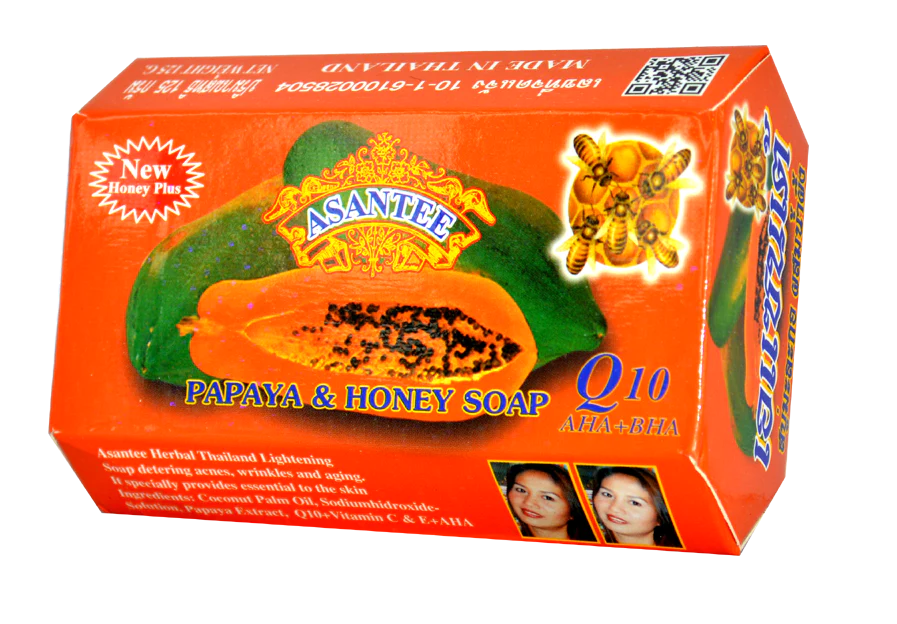Are you tired of using commercial soaps that leave your skin dry, itchy, and irritated? If so, let’s try Ashanti soap. This natural soap originates from Ghana and has been used for centuries to cleanse and moisturize the skin. In this article, we’ll explore the origins of Ashanti soap, its benefits, how to use it, and much more.
The Origins of Ashanti Soap
Ashanti soap, also known as African black soap or Alata Samina, has been used in West Africa for centuries. It is made from the ashes of plantain skins, cocoa pods, and palm leaves, which are then mixed with palm oil, coconut oil, and shea butter. The mixture is then heated and hand-stirred for several hours until it becomes a thick, dark paste.
The soap-making process is still done by hand, and the recipe is passed down from generation to generation. It is a traditional African remedy for many skin conditions, including acne, eczema, and psoriasis. It is also a general cleanser and moisturizer for all skin types.
The Benefits of Ashanti Soap
Ashanti soap has a wide range of benefits for the skin. It is made from all-natural ingredients and is free from harsh chemicals and synthetic fragrances that can irritate the skin. Here are just a few of the benefits of Ashanti soap:
Cleanses the skin: Ashanti soap is a natural cleanser that removes dirt, oil, and impurities from the skin. It leaves the skin feeling clean and refreshed.
Moisturizes the skin: Ashanti soap is rich in natural oils and butter that moisturize the skin. It helps to soothe dry, itchy skin and leaves it feeling soft and supple.
Helps with acne: Ashanti soap contains antibacterial properties that help to fight acne-causing bacteria. It can help to reduce inflammation and redness associated with acne.
Reduces the appearance of fine lines and wrinkles: Ashanti soap is rich in antioxidants that help to protect the skin from damage caused by free radicals. It can help reduce fine lines and wrinkles, giving the skin a more youthful appearance.
Helps with eczema and psoriasis: Ashanti soap is a natural remedy for eczema and psoriasis. It helps to soothe inflamed skin and reduce itching and irritation.
How to Use Ashanti Soap
Using Ashanti soap is easy. Wet the soap and lather it up on your hands or a washcloth. Apply the lather to your face and body, then rinse with warm water. The soap can be used daily as a general cleanser and moisturizer.
The Versatility of Ashanti Soap
Ashanti soap is a versatile product that can be used in many ways. Here are just a few:
Shampoo: Ashanti soap can be natural for all hair types. It helps to cleanse the scalp and hair without stripping it of its natural oils.
Shaving cream: Ashanti soap can be used as a natural shaving cream. Its moisturizing properties help to prevent razor burn and irritation.
Makeup remover: Ashanti soap can be a natural makeup remover. Its gentle formula removes makeup without stripping the skin of its natural oils.
Body scrub: Ashanti soap can be mixed with sugar or coffee grounds to create a natural body scrub. It helps to exfoliate the skin and remove dead skin cells.
Ingredients in Ashanti Soap
Ashanti soap is made from all-natural ingredients, including:
Plantain skins: Plantain skins are rich in vitamins A and E, which help to nourish and protect the skin.
Cocoa pods: Cocoa pods are rich in antioxidants, which help to protect the skin from damage caused by free radicals.
Palm leaves: Palm leaves contain vitamins A, C, and E, which help to nourish and protect the skin.
Palm oil: Palm oil is rich in vitamins A and E, which help to moisturize and protect the skin.
Coconut oil: Coconut oil is rich in fatty acids, which help to moisturize the skin and prevent moisture loss.
Shea butter: Shea butter is rich in vitamins A and E, which help to moisturize and protect the skin.
- 5 Best Cream for Dark Skin In Nigeria
- Is Palm Wine Good for a Pregnant Woman?
- The Ultimate Guide to Kids and Teens Cream: Tips, Benefits, and More
- How to Make Pink Lip Cream: A Comprehensive Guide
- How to Look Attractive as a Girl And Boost Your Confidence
Ashanti Soap for Sensitive Skin
You may be hesitant to try new skincare products if you have sensitive skin. However, Ashanti soap is a great option for those with sensitive skin. It is made from all-natural ingredients and is free from harsh chemicals and synthetic fragrances that can irritate the skin. It is mild and moisturizing, making it a great choice for sensitive skin.
Ashanti Soap for Acne-Prone Skin
If you struggle with acne, Ashanti soap can help. It contains antibacterial properties that help to fight acne-causing bacteria. It can also help to reduce inflammation and redness associated with acne. Ashanti soap is a natural remedy for acne and is gentle enough to be used daily.
Ashanti Soap for Aging Skin
As we age, our skin loses elasticity and can become dry and dull. Ashanti soap is a great option for ageing skin because it is rich in antioxidants that help to protect the skin from damage caused by free radicals. It can also help reduce fine lines and wrinkles, giving the skin a more youthful appearance.
Ashanti Soap for Eczema and Psoriasis
If you suffer from eczema or psoriasis, Ashanti soap may be able to help. It is a natural remedy for these conditions and can help to soothe inflamed skin and reduce itching and irritation.It is also gentle enough to be used daily and can help improve your skin’s overall health.
Ashanti Soap vs Commercial Soap
Commercial soaps often contain harsh chemicals and synthetic fragrances that can irritate the skin. On the other hand, Ashanti soap is made from all-natural ingredients and is free from these harsh chemicals. It is gentle and moisturizing, making it a great option for sensitive skin. It also contains antibacterial properties that help to fight acne-causing bacteria, making it a great option for those with acne-prone skin.
Where to Buy Ashanti Soap
Ashanti soap can be found at many health food stores and online retailers. Look for a brand that uses all-natural ingredients and is free.
How to Use Ashanti Soap
- Using Ashanti soap is simple. Here are the steps:
- Wet your skin with warm water.
- Rub the soap gently onto your skin in circular motions.
- Rinse off the soap with warm water.
- Pat your skin dry with a clean towel.
- Follow up with a moisturizer if necessary.
It is important to note that the soap can be rough, especially if you have sensitive skin. Therefore, starting with a small amount is recommended and gradually increasing it as your skin becomes accustomed to it.
Conclusion
In conclusion, Ashanti soap is a natural, all-purpose soap used for centuries in West Africa. It is made from plantain skins, cocoa pods, and shea butter, which provide numerous benefits for the skin. It is moisturizing, exfoliating, anti-ageing, and can even help with various skin conditions. It is easy to use and can be incorporated into any skincare routine. If you are looking for a natural soap that can provide multiple benefits for your skin, try the all purpose Ashanti soap.
Always start with a small amount and gradually increase the frequency to avoid irritating your skin. Consult a dermatologist or skincare professional if you have any concerns or questions. Overall, Ashanti soap is a great addition to any skincare routine, providing natural and effective cleansing and nourishment for the skin.
Frequently Asked Questions
1. Can Ashanti soap be used on the face?
Yes, Ashanti soap can be used on the face. However, using a small amount and avoiding the eye area is recommended.
2. Is Ashanti soap good for all skin types?
Yes, Ashanti soap is suitable for most skin types but may be too rough for those with extremely sensitive skin.
3. How often should I use Ashanti soap?
You can use Ashanti soap daily or a few times a week, depending on your skin’s needs. However, if you have sensitive skin, it is best to use it sparingly and gradually increase the.
4. Does Ashanti soap have a strong scent?
Yes, Ashanti soap typically has a natural, earthy scent due to its ingredients. However, some varieties, such as lavender or peppermint, may have added scents.
5. Can Ashanti soap help with acne?
Yes, Ashanti soap is effective in treating acne due to its antibacterial and exfoliating properties. However, results may vary, and it is best to consult a dermatologist if you have severe acne.







